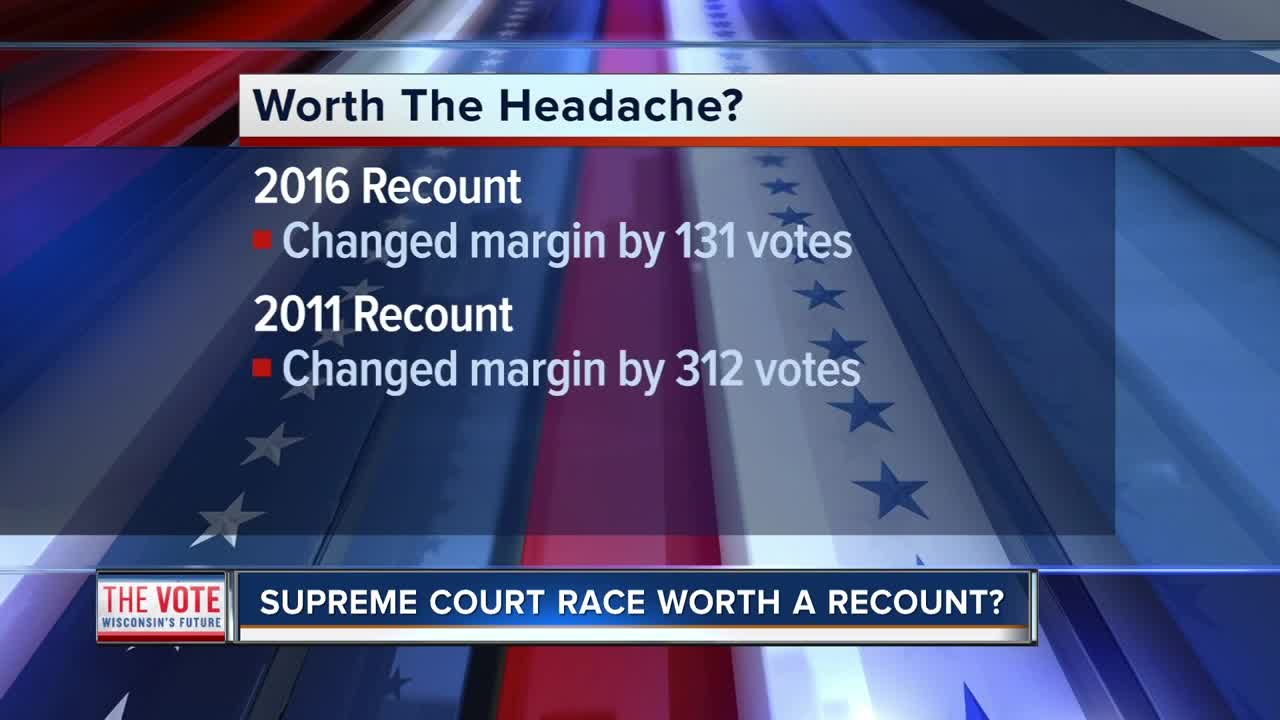For the third time in eight years, a recount could be on for the state of Wisconsin.
Brian Hagedorn declared his victory over Lisa Neubauer in the race for Wisconsin State Supreme Court, although experts say it's too close to call. After 1.2 million votes were cast, Hagedorn leads Neubauer by 5,960 votes with 100 percent of the precincts reporting. It's a difference of .49 percent, enough to allow for a recount.
Although it could be costly.
"The losing candidate can request a recount if the margin is one percent or less," Reid Magney, spokesperson for the Wisconsin Elections Commission said. "However, in order for the recount to be free, the margin has to be a quarter percent or less and they aren't there. At least right now, based on the unofficial results."
Magney says the unofficial results are generally very true to the official results. Every county will do official canvasses in the next ten days to validate their ballots. In 2011, there was an anomaly, when a portion of ballots were never submitted. Outside of that, Magney says they are pretty true to form.
"Everyone remembers 2011 in Waukesha County, due to human error, the results from Brookfield weren't included in the county's totals," Magney said. "I've been in this nine and a half years and the only time something like that has ever happened."
After the canvasses are done and the last of the 72 counties submits its final count, Neubauer would have three business days to decide if she wants a recount. She hasn't officially said yet, but made a statement through her Facebook that seems to show where her team is leaning.
"We have seen near record turnout and a razor-thin margin," Neubauer said. "We need to make sure that every last vote is counted and that's goign to take a little time."
In past experiences, the recounting process has taken weeks. In 2011, it took nearly a month and a half. It's a tedious process to make sure they got it right.
"When you recount ballots, there are two ways you can do it, by machine or hand," Magney said. "In the case of a machine recount, they get the voting equipment reprogrammed and they individually feed every ballot back through the machine and compare those results with the original results to make sure they're correct. In the case of a hand count, they'll physically hand count those ballots. They make stacks of 10 ballots and another stack of 10 ballots. They stack them up in alternate directions and things like that. They go through all of them by hand."
All of this work tends to be costly. In 2016, Jill Stein had a recount in Wisconsin. It cost her camp over $2 million. There were less than half as many votes in this election, so it may be a little less than that but Magney says it could still be costly.
So now, Neubauer's camp will have to decide if it's worth it and history has shown it's not.
In 2011, the recount resulted in a margin change of 312 votes.
In 2016, the recount resulted in a margin change of just 131 votes. As a reminder, Neubauer trails by 5,960 votes.





